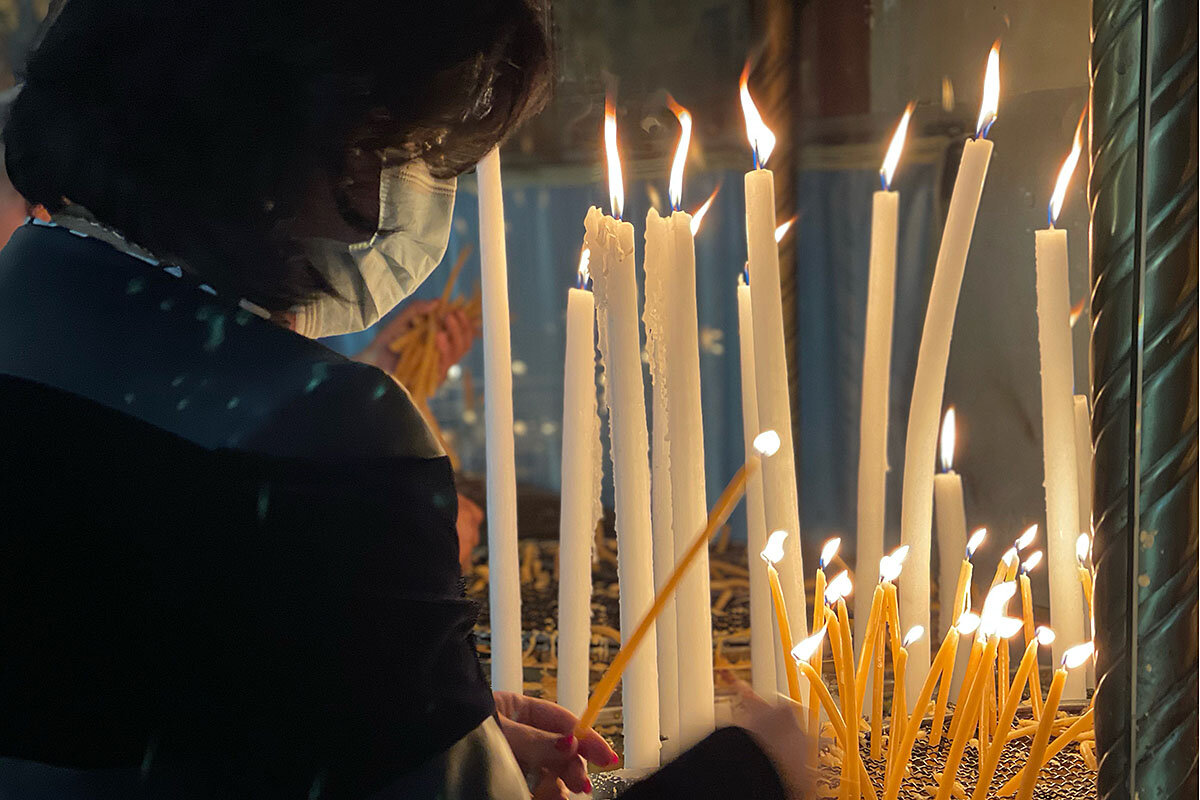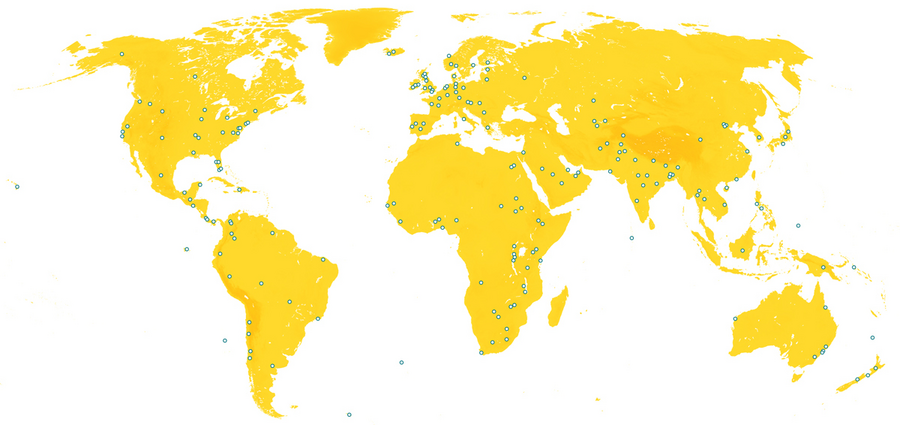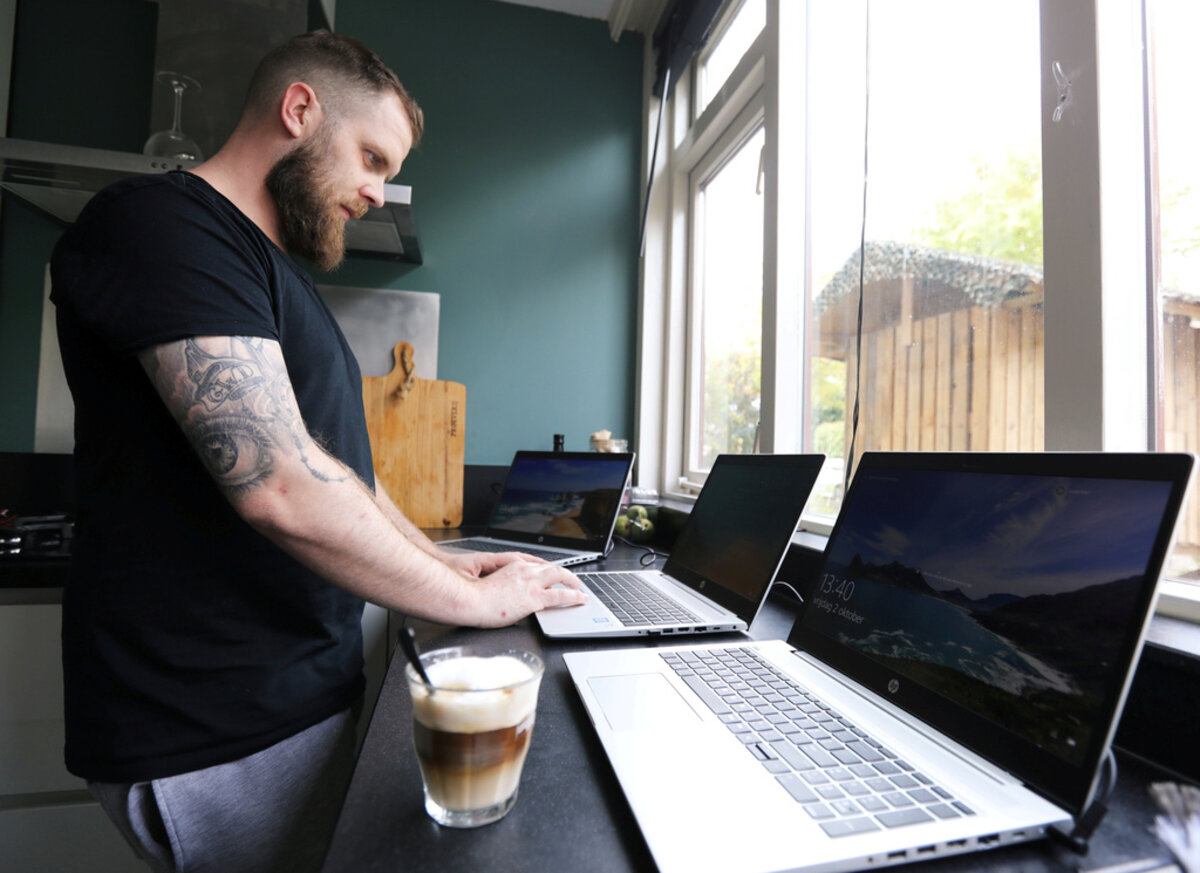For centuries the morning cry has been “off to work we go.” The workplace was at a distance, both physically and mentally, from our homes.
But the pandemic has left a good portion of workers – some 42% of Americans, by one estimate – doing their jobs from their homes. Those who don’t are largely “essential workers” whose work demands they leave home behind each day.
In some ways society has returned to the days before the 18th-century Industrial Revolution, when working from home was the norm. Then both men and women might make brooms or shoes or weave cloth in their homes, often with material supplied by an employer. (In Britain, houses had larger windows upstairs to let in sunlight where work was taking place, The Economist points out.) When these home workers turned in the finished product, they were paid not by the hour but for each piece completed – a forerunner of today’s gig economy.
Working away from home brought advantages, though, including the ability to join together with others to form labor unions that boosted wages and improved working conditions.
Still, working from home wasn’t all bad. People had control over when, and how long, they worked each day. Parents were able to juggle child care and earning a living as needed. In the United States, in fact, one set of data suggests that it wasn’t until 1914 that most people were employed outside the home.
Peering into 2021 it’s unclear when – or if – millions of people will return to offices. Some businesses have set goals to bring back workers by spring or summer; others aren’t even trying to project when it might happen.
The list of jobs possible from home keeps expanding too: The shop-at-home era created by Amazon et al. has yielded thousands of new at-home jobs filling orders for call centers. That has cushioned somewhat the huge job losses in service industries, such as restaurants and other retailers. More opportunities are needed to absorb those workers, especially in communities of color disproportionately employed in the service industries.
Many people have found they enjoy working from home. For some the time saved in commuting is being happily reinvested in more time spent with family, one study suggests. (But for workaholics, especially in management, work from home may just extend the workday.)
The concept of home as a haven of rest, shielded from the world of earning a living, is under revision.
The new generation of home-based workers is investing in equipment, furnishings, and gadgets that make their home work more enjoyable. (Noise-canceling headphones, for example, can help create an oasis of calm in a busy household.) People who’d never attended a Zoom meeting or engaged in a Slack conversation have become tech savvy much more quickly than they imagined possible.
Working from home may also mean work – and home – can exist anywhere. This opens up the possibility to help with a care situation for a family member in another city or even to try life simplified down to an Airstream trailer.
Combining work with home can also require devising new ways of structuring family life, from how to divvy up the household chores and child care to deciding who’ll get that prime spot with the morning sun or the lovely view to set up shop.
In time, no doubt, many workers will drift back to rubbing elbows in offices, at least part of the time. But the home and work divide now has been forever breached.
 Mark Sappenfield
Mark Sappenfield












